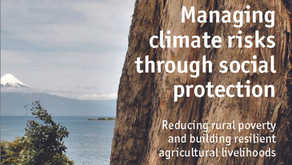

Our Commitment to Climate Action
UNHS is committed to taking action on climate issues in Scotland, and working towards climate justice at home and abroad.
Through education, collaboration, and strategic partnership with concerned citizens in all levels of society, we are working to raise awareness for the causes, impacts, and signs of climate change in our communities
About Climate Action and Climate Justice
The excitement about the Paris Agreement comes from it exceeding what was expected as politically possible. However, it is blind to the ecological requirements and issues of justice. Climate politics and climate science do not coincide. The 2°C that the parties committed to is an arbitrary target and the aspirational target of 1.5°C will still have devastating impacts such as extreme heat waves, food production losses and most coral reefs will be at risk. Furthermore, with a current global emission rate of 40Gt/year it will take only 15 years to exceed the 2°C.

Global emissions need to reach zero by 2040 in order to prevent devastating unpredictable climate changes. Yet, hopes to delay the inevitable rely on the concept of negative emissions that are to be achieved with nonexistent technologies. The more the emission peak is delayed the more drastic action is needed. Thus, it is undeniable that states need to radically review their level of ambition now.
This burden needs to be shared fairly between all countries. Currently, the top three emitters (China, USA and EU 28) account for more than half of the global emissions
whereas the 100 lowest-emitting countries only account for 3.5%. However, looking at the issue from this perspective does not recognize the legacy of the past and it is blind to internal inequalities. Also, this perspective inadequately draws comparisons between very different entities and does not consider the responsibility of non-state actors, such as corporations.
Regarding the per capita historical responsibilities that have resulted from centuries of exploitation of a global commons for the benefit of the few the distribution looks very different. The adaptation options of developing countries are limited by rich countries expending more than their fair share of emissions. By now, rich countries have already used 2 to 6 times their fair share at the expense of the development space of other countries.
As Mathieu Munsch said at our Climate Justice Conference held in May 2018: 'We need to get beyond ‘inadequate hopes to correct inadequate ambition to complete an inadequate plan to fulfil an inadequate goal’.

Claudia Beamish, MSP and Dr. Gari Donn, UNHS Executive Director, speak on a panel at the April 2018 conference.
Our Climate Action/Climate Justice Programme focuses on how we do this – how we understand, address and help to implement Climate Justice Now.
A UNHS Project: "From Paris to COP26"

The project entails the signing of the Paris Climate Agreement with as many individuals, local councils, organizations, and private enterprises as possible, facilitated by a series of events starting and ending with two high-profile ceremonies over a period of several months/weeks.
This initiative’s goal is to engage with leaders and individuals from all sectors to actually focus on the Achievement of the Paris Climate Agreement and their latest commitments set out at the Climate Ambitions Summit, hosted by the UN and the UK government in December 2020. The purpose of the project is to create synergy and build on the agreement of world leaders, and to identify and disseminate helpful toolkits and guides for implementation to achieve the goal
Click here for our first up-coming event.
Resources
Scotland's Path to Climate Justice
UNHS is a proud supporter of the Paris Climate Agreement, and is dedicated to its implementation here in Scotland. Following the agreement, Scotland was the third country/sub-nation/region to pass legislation to address the global climate goals. The target, for the Scottish Government, is to be carbon neutral by 2050. In fact, the SG Consultation calls for a 90% reduction in carbon emissions by 2050.
We recognize, however, that the Agreement’s goals cannot be achieved by government alone, and citizen involvement is critical to success. By hosting “Scotland’s Path to Climate Justice”, UNHS hopes to engage people in Scotland throughout all sections and sectors of Scottish society, to be aware of and work towards global climate justice. For maximum success at achieving our climate goals, all sectors of society must become involved, including agriculture, business, commerce, education, health, and housing, through awareness of energy issues, impact of travel, planning regulations and development possibilities.
In this spirit, UNHS hosted 'Scotland's Path to Climate Justice' in April 2018. Bringing together government representatives, experts, activists, and academics, UNHS facilitated meaningful dialogue and fostered new relationships enabling our communities to tackle climate change together. The report is available for download.

Attendee Sarah Gittens illustrated key moments of the conference.












































































